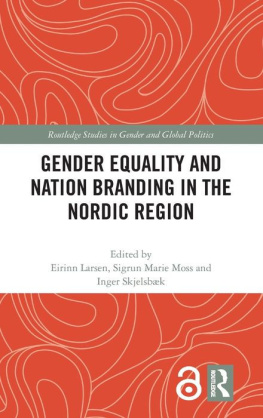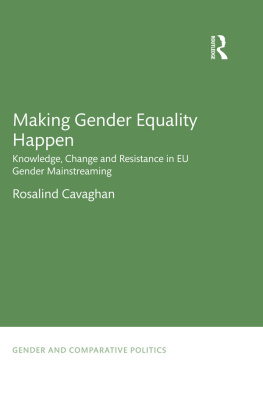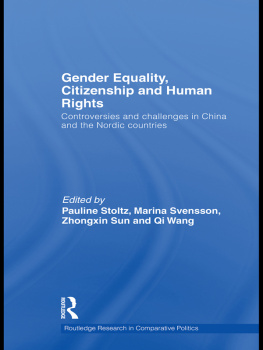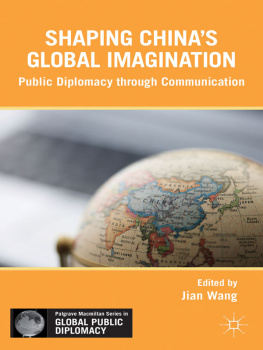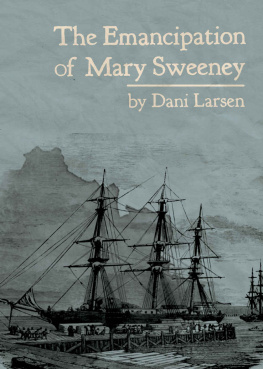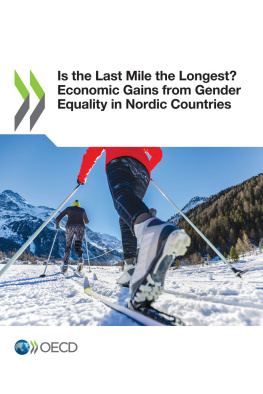Gender Equality and Nation Branding in the Nordic Region
This book explores how gender equality, a central part of the Nordic imaginary, is used in the political communication of Nordic states. The analyses presented move beyond conventional images and discourses of Nordic gender- and women-friendliness by critically investigating how and to what extent gender equality serves nation-branding in the Nordic region.
Nation-branding is an unescapable part of globalisation, which is a market-oriented process dominated by the West and predicated on the creation of winners and losers. Hence, efforts to strengthen the national brand or reputation of specific Nordic countries with the aid of gender equality as a political and symbolic value inevitably help to reinforce already established global hierarchies where the Nordics play the role of moral superpower. This book comprises scholars from various fields of specialisation, and provides evidence and understanding for the growing interaction between gender-equality policies and nation-branding in all five Nordic countries. It does so by exploring a variety of policy fields and issues including womens rights, foreign policy, rape and legislation, female quotas and business policies, in addition to the index industry. The rise of the global indexes has reproduced forceful images of the Nordic countries as frontrunners of gender equality, which indeed help the Nordic countries to further position themselves as best at being good.
This book will be of great interest to students and scholars of Nordic gender equality in political science, sociology, law, criminology, political psychology and history, as well as those interested in nation-branding, Nordic studies and exceptionalism.
Eirinn Larsen is Professor of History in the Department of Archaeology, Conservation and History at the University of Oslo, Norway.
Sigrun Marie Moss is Associate Professor in the Department of Psychology at the University of Oslo, Norway.
Inger Skjelsbk is Professor at the Center for Gender Research and the Center for Research on Extremism at the University of Oslo, Norway.
Routledge Studies in Gender and Global Politics
Series Editor: Laura J. Shepherd, University of Sydney, Australia
This series aims to publish books that work with, and through, feminist insights on global politics, and illuminate the ways in which gender functions not just as a marker of identity but also as a constitutive logic in global political practices. The series welcomes scholarship on any aspect of global political practices, broadly conceived, that pays attention to the ways in which gender is central to, (re)produced in, and is productive of, such practices.
There is growing recognition both within the academy and in global political institutions that gender matters in and to the practices of global politics. From the governance of peace and security, to the provision of funds for development initiatives, via transnational advocacy networks linked through strategic engagement with new forms of media, these processes have a gendered dimension that is made visible through empirically grounded and theoretically sophisticated feminist work.
Civil Society, Care Labour, and the Women, Peace and Security Agenda Making 1325 Work
Caitlin Hamilton, Anuradha Mundkur and Laura J. Shepherd
Gender Equality and Nation Branding in the Nordic Region
Edited by Eirinn Larsen, Sigrun Marie Moss and Inger Skjelsbk
International Womens Rights Law and Gender Equality
Making the Law Work for Women
Edited by Ramona Vijeyarasa
Gender and Political Apology
When the Patriarchal State Says Sorry
Emma Dolan
The European Unions International Promotion of LGBTI Rights
Promises and Pitfalls
Markus Thiel
First published 2021
by Routledge
2 Park Square, Milton Park, Abingdon, Oxon OX14 4RN
and by Routledge
605 Third Avenue, New York, NY 10158
Routledge is an imprint of the Taylor & Francis Group, an informa business
2021 selection and editorial matter, Eirinn Larsen, Sigrun Marie Moss and Inger Skjelsbk; individual chapters, the contributors
The right of Eirinn Larsen, Sigrun Marie Moss and Inger Skjelsbk to be identified as the authors of the editorial material, and of the authors for their individual chapters, has been asserted in accordance with sections 77 and 78 of the Copyright, Designs and Patents Act 1988.
The Open Access version of this book, available at www.taylorfrancis.com, has been made available under a Creative Commons Attribution-Non Commercial-No Derivatives 4.0 license.
Trademark notice: Product or corporate names may be trademarks or registered trademarks, and are used only for identification and explanation without intent to infringe.
British Library Cataloguing-in-Publication Data
A catalogue record for this book is available from the British Library
Library of Congress Cataloging-in-Publication Data
Names: Enloe, Cynthia H., 1938 author. | Larsen, Eirinn, editor. | Moss, Sigrun Marie, editor. | Skjelsbk, Inger, editor.
Title: Gender equality and nation branding in the Nordic region / edited by Eirinn Larsen, Sigrun Marie Moss and Inger Skjelsbk.
Description: Abingdon, Oxon; New York, NY : Routledge, 2021. | Series: Routledge studies in gender and global politics | Includes bibliographical references.
Identifiers: LCCN 2021003247 (print) | LCCN 2021003248 (ebook) | ISBN 9780367861353 (hardback) | ISBN 9781003017134 (ebook)
Subjects: LCSH: WomenSocial conditionsScandinavia. |
Place-marketingScandinavia.
Classification: LCC HQ1667.E55 2021 (print) | LCC HQ1667 (ebook) | DDC 305.40948dc23
LC record available at https://lccn.loc.gov/2021003247
LC ebook record available at https://lccn.loc.gov/2021003248
ISBN: 978-0-367-86135-3 (hbk)
ISBN: 978-0-367-69293-3 (pbk)
ISBN: 978-1-003-01713-4 (ebk)
DOI: 10.4324/9781003017134
Typeset in Times New Roman
by codeMantra

This picture shows Mother Norway who is a blond Valkyrie painted by Andreas Bloch in 1905 and symbolizes that it is women who decide who shall live and die in battle.*
* Source: Artist: Andreas Bloch (18601917), used with permission of the National Library of Norway (owner institution).
Eirinn Larsen, Sigrun Marie Moss and Inger Skjelsbk
DOI: 10.4324/9781003017134
Gender equality is an inevitable part of the Nordic imaginary and partly for unmistakable reasons: The Nordic states enfranchised women ahead of most countries and regions in the world. And since the social transformations of the 1970s, the Nordics have all introduced generous welfare programmes and policies to overcome inequalities deriving from longstanding structures and cultures of gender difference. At the same time, there is reason to ask what role this predominantly progressive gender image currently plays in the political communication of the Nordic states abroad. Particularly in a time when branding has become a necessary marker of identification, a language for all nations on a global scale (Aronczyk, 2018: 233), we need to investigate more critically the strategic use of gender equality in the Nordic region for the purposes of nation-branding and reputation management.


